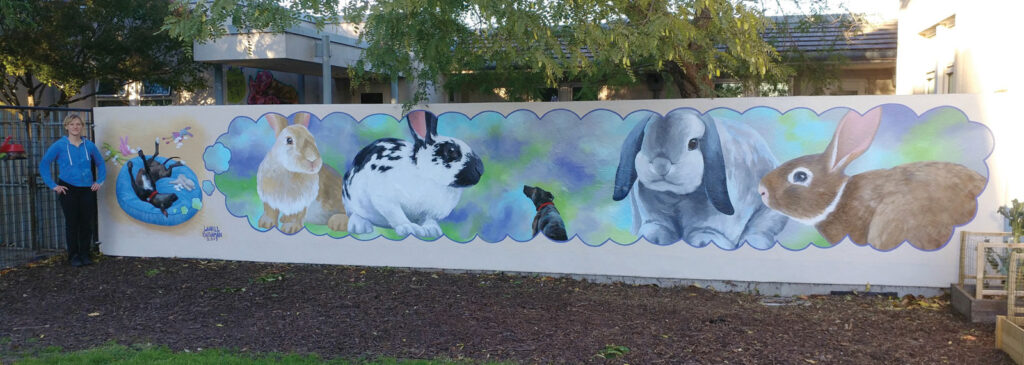
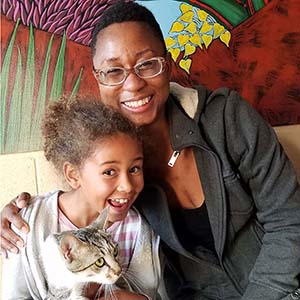 FOAS funds staff and critical program support at the shelter, including:
FOAS funds staff and critical program support at the shelter, including:
- Staff and supplies for the shelter’s robust foster program, particularly important for neonatal kittens and special needs dogs
- Staff and support for the transfer program that connects animals to both local and out-of-state partner groups
- The Working Cat Program (formerly Oakland Cats on Patrol), a program that pairs people who need eco-friendly rodent control with feral cats looking for mousing work and a safe outdoor home
- The Human Animal Support Services coordinator, tasked with helping pets stay with their guardians, oversees community clinics that provide free vet care to those in need
About the Working Cat Program
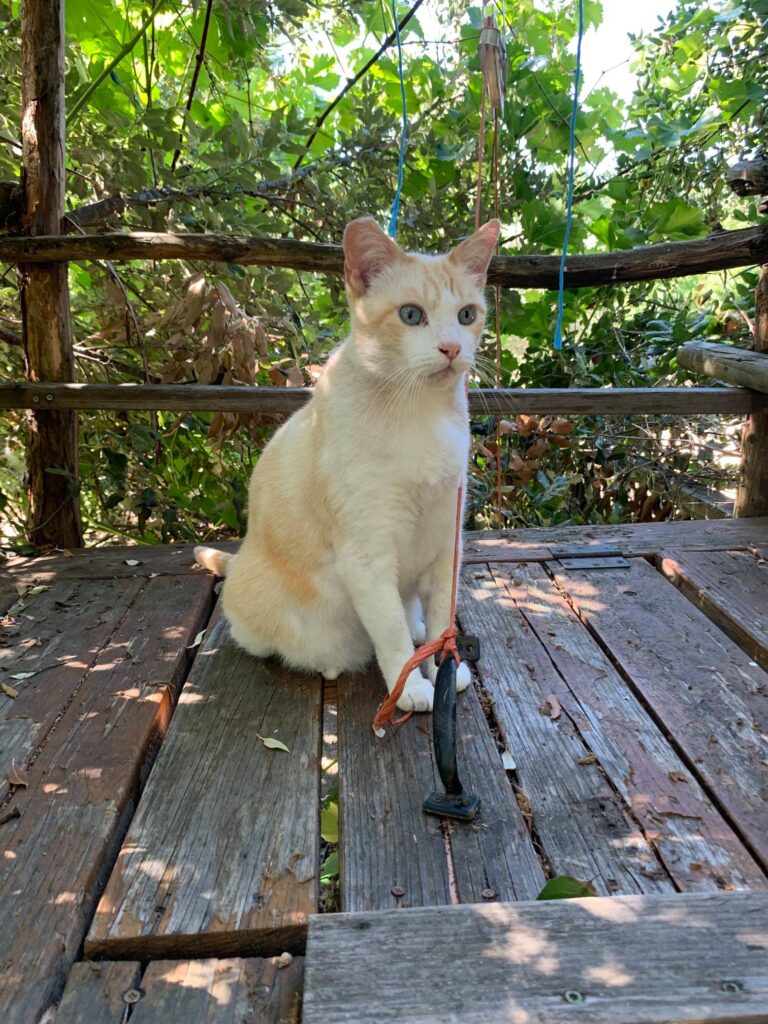
Oakland Animal Services takes in over 2,000 cats annually from the community. Most are social house cats looking for new families, but a significant number are feral cats – similar to wildlife, not having had human interaction. Some of these cats may end up returning to their neighborhoods after being spayed/neutered, but others have no safe place to return to.
Since October 2016, FOAS has funded the Working Cat Program, saving the lives of over 200 free-roaming cats. Just because some cats have only lived a life outdoors, without people, does not mean they should be euthanized. OCoP pairs people in Oakland (and beyond) who need eco-friendly rodent control with two or more feral cats looking for mousing work and a safe outdoor place to call home.
For more information on adopting your own working cats, visit the OAS Working Cat Program page.
Check out the success story featuring Porter and Amber, two working cats adopted in 2017 by Oakland brewery Ale Industries.
About the HASS Program
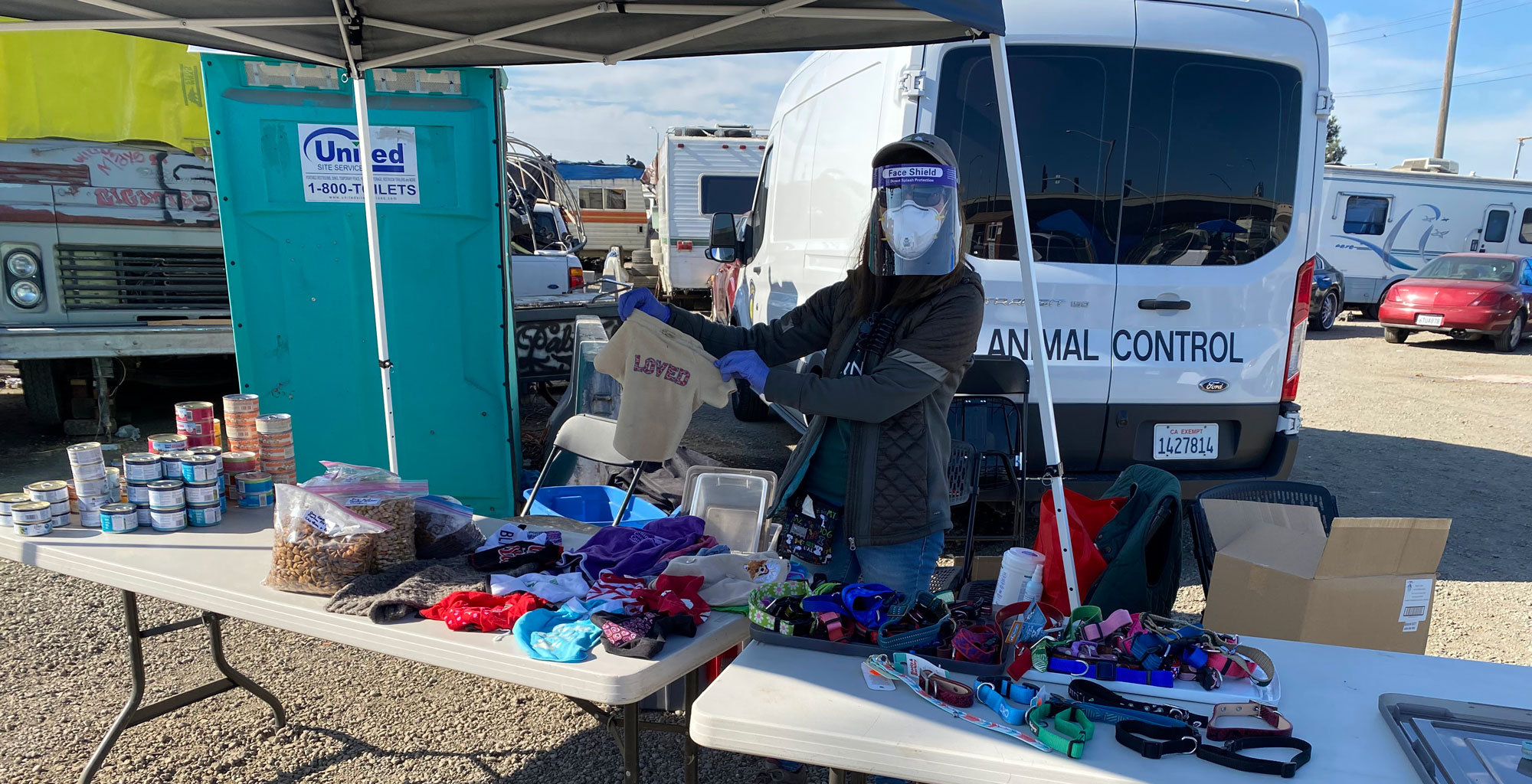
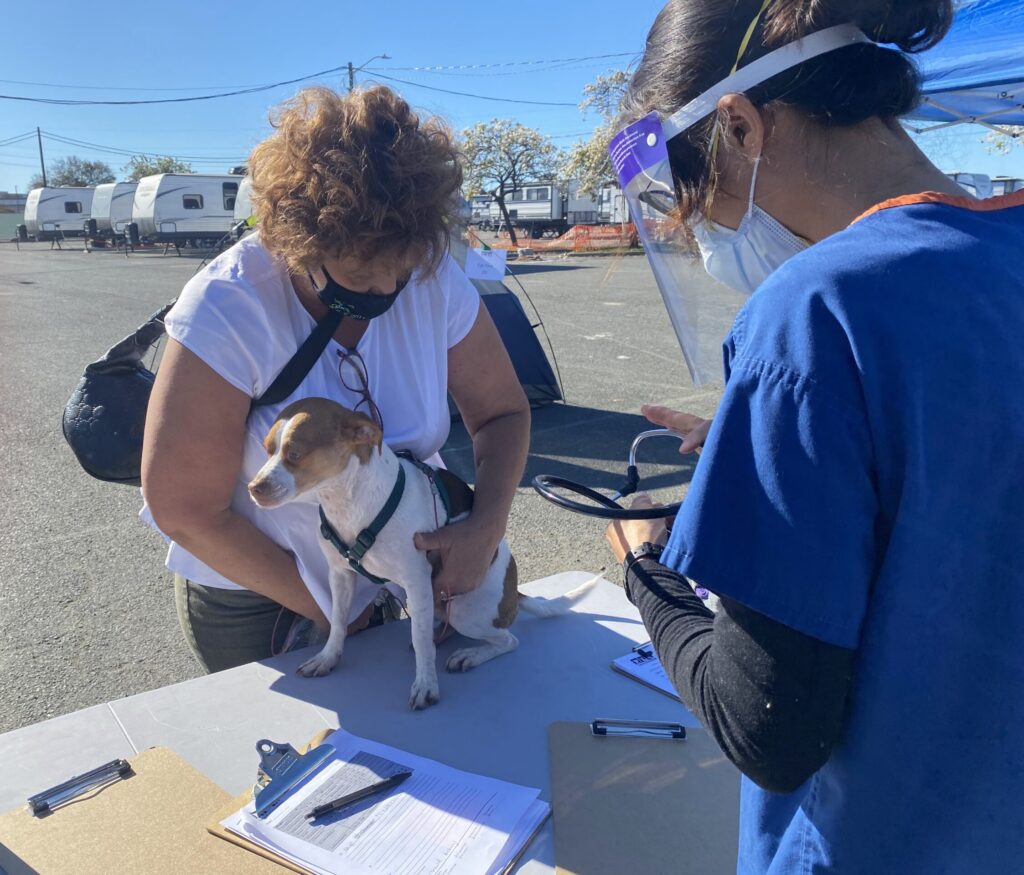
In spring 2020, Oakland Animal Services was one of ten shelters across the country invited to participate in the Human Animal Support Services (HASS) pilot program. HASS reimagines animal sheltering by focusing on providing community programs that help keep more animals in their homes and communities, therefore reducing the number entering shelters. This is done by providing a range of services for animals who don’t need to come into the shelter for a medical, behavioral, or other urgent reason. Fundamental to the HASS model is the belief that animal and human welfare are linked, and animals are part of family systems and should be addressed inclusively.
FOAS funds the budget for the HASS program coordinator here in our Oakland community. Donell Randolph describes the impact of his position:
Having the ability to help people keep their animals by coordinating outreach clinics with the OAS veterinary team improves the lives of both people and animals. We are helping unsheltered families and people who cannot afford to get treatment for their animals. I love seeing families’ faces light up when I tell them that OAS can help their animals with medical services or pet food at no cost to them…. This is why I love my job: I can make a difference for animals and the people who love them.
These programs are essential for adoptions and reducing shelter intake and length of stay.
Additionally, we fund materials, training, and other supplies for the volunteer program that is integral to the quality of life for shelter animals. Volunteers provide thousands of hours of socialization and adoption support to the shelter every year.
FOAS has also funded the creation of indoor and outdoor play areas and improvements to animal housing, including general supplies and repairs.